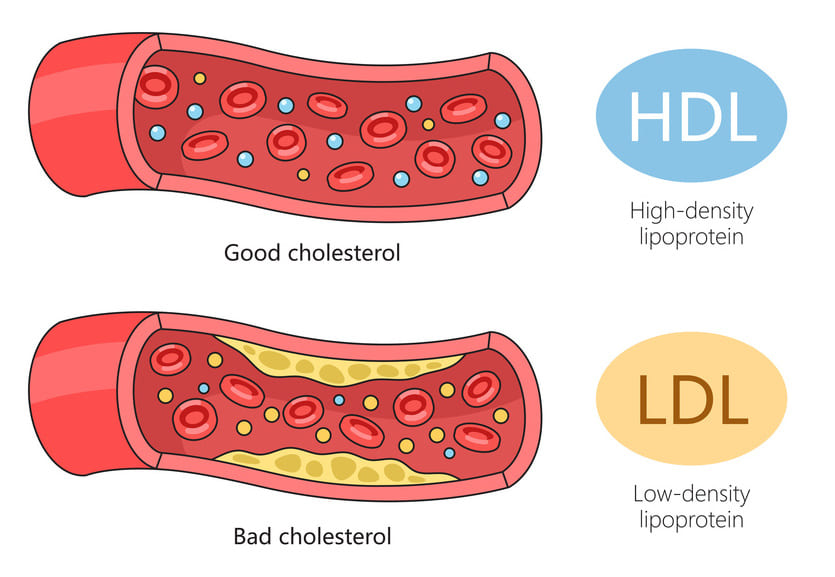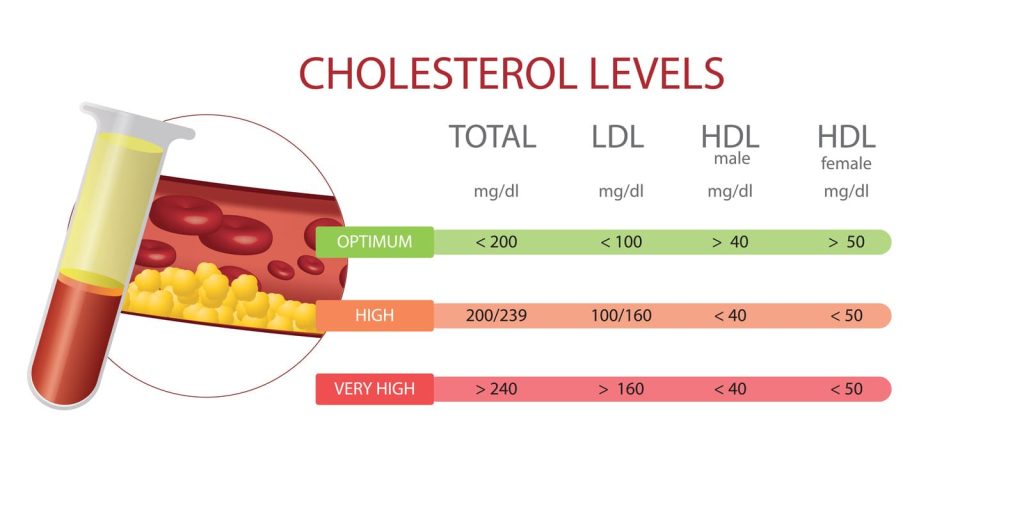Know Your Numbers.
Cholesterol
In the second installment of our “Know Your Numbers” series, we will discuss cholesterol. Cholesterol is essential for good health, but too much “bad” cholesterol can put you at higher risk of heart disease, the leading cause of death in the US. When you work with your primary care provider (PCP) to consistently monitor blood cholesterol levels, you are doing your arteries a favor!
Cholesterol’s Role in Your Body
Let’s start by reviewing what role cholesterol plays in your body. Cholesterol is a waxy substance that helps your body build and repair tissue, produce steroid hormones, help create bile, and aid in the production of vitamin D. The cholesterol circulating in your body comes from two places: the food you eat and your liver. The liver produces all the cholesterol your body needs to function properly.

The “Good”, the “Bad” and the Ugly: Types of Cholesterol
We have all heard of “good” and “bad” cholesterol, but what does that really mean? There are several types of cholesterol circulating in your body. Low-density lipoprotein (LDL) serves an important function by carrying cholesterol to various parts of the body. However, because LDL collects in your vessel walls increasing your chances of heart attack or stroke, it is commonly referred to as “bad” cholesterol. High-density lipoprotein (HDL), the “good” kind, absorbs cholesterol in the blood and carries it back to the liver where it can be flushed out from the body. Because of this action, higher HDL levels can reduce your chances of heart disease.
Our body also produces triglycerides, which are produced by your liver and intestines. When you eat meals high in fat and calories, the body produces an even greater amount of triglycerides and stores the excess in fat cells. These fat stores then release triglycerides into your bloodstream when your body needs energy.
There are several other important types of cholesterol. Click here to learn more.
Know Your Numbers
A simple test, ordered by your PCP and commonly referred to as a “lipid blood tests” will help monitor your cholesterol levels. It is typical that you will be required to fast 8-12 hours prior to getting your blood drawn. Use the chart below to see where you stand. If a cholesterol problem is identified, work with you PCP to come up with a treatment plan. Click here to learn more about prevention and treatment of high cholesterol, your heart will thank you!
Sources:

